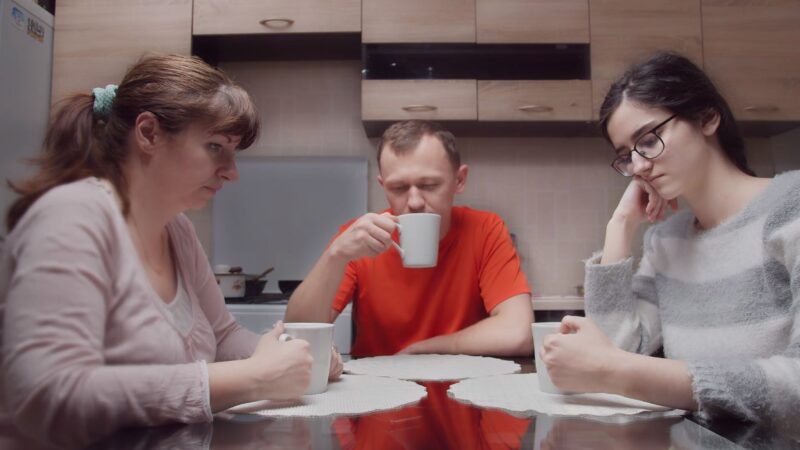Mental health is an essential aspect of our overall well-being, yet it is often misunderstood and stigmatized in society. Understanding mental health and the importance of family support in its treatment is crucial for promoting positive outcomes for individuals and their families.
In this article, we will delve into the basics of health, shed light on the significance of family support, and explore how families can play a vital role in the treatment process.
The Basics of Mental Health
It encompasses our emotional, psychological, and social well-being. It affects how we think, feel, and act, influencing our ability to cope with stress, interact with others, and make choices. Mental health conditions can range from common disorders like anxiety and depression to more severe conditions like schizophrenia or bipolar disorder.
It is important to understand that illnesses are not a sign of weakness or personal failure, but rather complex conditions that can be influenced by genetic, biological, environmental, and lifestyle factors.
Importance of Family Support
Family support plays a crucial role in the mental health treatment journey. Research consistently highlights the positive impact that a supportive and understanding family environment can have on an individual’s well-being and recovery.
Family members can provide emotional support, assist in recognizing early signs of illness, encourage seeking professional help, and help individuals navigate through the complexities of the healthcare system. Moreover, family support can contribute to reducing stigma and promoting open conversations about mental health within the family and society at large.
How Families Can Support Mental Health
Family members can support mental health by creating an environment of empathy, trust, and open communication. Listening without judgment, expressing care and understanding, and providing reassurance are essential components of effective family support.
Additionally, families can play an active role in encouraging their loved ones to seek professional help, accompanying them to therapy sessions, and actively participating in treatment plans. Educating oneself about health conditions, debunking myths and misconceptions, and promoting self-care practices within the family are also essential elements of family support in treatment.
Recognizing Early Signs of Mental Illness
Recognizing the early signs of illness is vital for timely intervention and effective treatment. Family members are often the first to notice changes in behavior, mood, or cognition in their loved ones. Understanding the role of the family in recognizing these early signs can make a significant difference in the mental health journey.
Explore the importance of family vigilance, common signs to watch out for, and the benefits of early detection in treatment.
The Importance of Family Vigilance
Families play a crucial role in observing and recognizing changes in their loved one’s health. As family members are intimately familiar with their loved ones’ behaviors, habits, and personality traits, they are more likely to notice subtle deviations from the norm.
Being vigilant and proactive in observing these changes can help initiate timely conversations and interventions, potentially preventing further deterioration of conditions. Moreover, family members are often the ones who notice when their loved ones are struggling to cope with stress, experiencing mood swings, withdrawing from social activities, or exhibiting unusual behaviors.
Common Signs to Watch Out For
While health conditions can manifest in various ways, there are several common signs that families should be aware of.
These signs include persistent feelings of sadness or hopelessness, significant changes in appetite or sleep patterns, increased irritability or anger, loss of interest in previously enjoyed activities, difficulty concentrating or making decisions, social withdrawal or isolation, unexplained physical ailments, and thoughts of self-harm or suicide.
Recognizing these signs requires a keen eye and open communication within the family, allowing for early intervention and appropriate professional help.
Benefits of Early Detection and Intervention
Early detection of illness can have a profound impact on the treatment outcomes and overall well-being of individuals. It allows for timely access to appropriate care and interventions, which can prevent the exacerbation of symptoms and the development of more severe conditions. When families recognize the signs early on and seek professional help, it increases the chances of successful treatment and long-term recovery.
Early intervention can also minimize the potential negative consequences of untreated health conditions, such as impaired academic or occupational functioning, strained relationships, and reduced quality of life. Therefore, the active involvement of family members in recognizing early signs of mental illness is crucial for improving outcomes and promoting well-being.
Communication – An Essential Tool
Effective communication is a cornerstone of healthy relationships, and when it comes to health, it becomes even more critical. Communication within families plays a pivotal role in providing support, understanding, and empathy to individuals with conditions.
Understand the importance of communication in family support for mental health, discuss common communication barriers, and provide practical strategies for fostering open and effective communication within the family unit.
The Importance of Communication in Family Support
Communication is a powerful tool for building trust, expressing emotions, and creating a supportive environment within families. When it comes to, effective communication can help individuals feel heard, validated, and understood. Sharing thoughts, concerns, and experiences openly can facilitate problem-solving, reduce feelings of isolation, and encourage help-seeking behaviors.
Moreover, communication allows family members to gain insights into the challenges their loved ones may be facing, fostering empathy and enhancing the overall support provided.
Common Communication Barriers
Despite the importance of communication, there are several common barriers that can hinder effective communication within families. These barriers include stigma and shame surrounding mental health, fear of judgment or rejection, lack of knowledge or understanding about health conditions, and difficulties expressing emotions or articulating experiences.
Additionally, communication styles within families can vary, and differences in communication preferences and skills can impede effective interaction. Recognizing and addressing these barriers is essential for creating an open and supportive communication environment.
Strategies for Fostering Open and Effective Communication
There are several practical strategies that families can employ to foster open and effective communication when supporting a loved one with health challenges. First and foremost, creating a safe and non-judgmental space for sharing thoughts and feelings is crucial. Active listening, which involves giving undivided attention and showing empathy, can go a long way in promoting understanding and connection.
Setting aside dedicated time for family discussions, promoting open-ended questions, and validating emotions can also facilitate meaningful conversations. Additionally, educating oneself about health conditions, attending family therapy sessions, and seeking guidance from health professionals can provide families with valuable tools and resources for effective communication.
It is important to remember that effective communication is a learned skill that requires practice and patience, but the rewards it brings to family in treatment are immeasurable.
Empowering Families – Encouraging Active Participation Treatment
Empowering families to actively participate in mental health treatment is a key component in promoting positive outcomes for individuals with mental health conditions. When families are involved and engaged in the treatment process, it not only strengthens the support system but also enhances the effectiveness of interventions.
In this section, we will explore the importance of empowering families, discuss the benefits of their active participation, and provide practical strategies for families to become active partners in the mental health treatment journey.
The Importance of Empowering Families
Empowering families to actively participate in mental health treatment has numerous benefits for both the individuals receiving treatment and the overall well-being of the family unit. When families are empowered, they become more knowledgeable about health conditions, treatment options, and coping strategies.
This knowledge enables them to provide informed support, make decisions collaboratively with the individual, and advocate for their loved ones within the healthcare system. Empowered families also experience increased confidence, reduced feelings of helplessness, and improved communication and problem-solving skills. Ultimately, empowering families strengthens the therapeutic alliance, promotes better treatment adherence, and enhances the overall treatment outcomes.
Benefits of Active Family Participation
Active family participation in mental health treatment can significantly improve outcomes for individuals with health conditions. Families can offer valuable insights into the individual’s history, experiences, and trauma triggers, which can inform treatment planning and interventions. They can also provide support in implementing therapeutic techniques and strategies learned in therapy sessions.
Additionally, involving families in treatment can improve continuity of care and facilitate a smoother transition from professional treatment settings to everyday life. The collaborative approach between professionals and families fosters a sense of shared responsibility, increasing the individual’s motivation, engagement, and adherence to treatment plans.
Strategies for Families to Become Active Partners
To become active partners in mental health treatment, families can employ various strategies that promote engagement and collaboration. Education plays a vital role, as families can learn about the specific condition their loved one is facing, treatment options, and available community resources.
Attending therapy sessions, either as a family unit or individually, allows families to gain insights, learn coping skills, and actively participate in the therapeutic process. Collaborating with health professionals to set treatment goals, develop personalized strategies, and monitor progress can also empower families to contribute meaningfully to the treatment journey.
It is important for families to maintain open lines of communication with the treatment team, ask questions, express concerns, and provide feedback on the effectiveness of interventions. By actively participating in health treatment, families become essential partners in the recovery process, fostering a supportive and empowering environment for their loved ones.
Effects of Mental Illness on Families – The Need for Support Networks
Mental illness does not only impact the individuals experiencing it, but it also affects their families and networks. The challenges and demands of caring for a loved one with a mental health condition can take a toll on families, both emotionally and practically.
Recognizing the effects of illness on families and the importance of networks is crucial for promoting the well-being of both individuals with conditions and their families. So what are the effects of illness on families, and what is the significance of support networks? We will help provide insights into how families can access and leverage support.
Emotional and Practical Challenges Faced by Families
Families caring for a loved one with a mental health condition often face numerous emotional and practical challenges. Emotionally, they may experience feelings of guilt, shame, fear, frustration, or helplessness. Witnessing their loved ones’ struggles can lead to significant stress, anxiety, and depression.
Families may also encounter difficulties in understanding and accepting the changes in their loved ones’ behaviors and functioning. Practically, families may have to navigate complex healthcare systems, coordinate appointments, manage medications, and provide ongoing support and care. The cumulative effects of these challenges can strain relationships, disrupt family dynamics, and impact the overall well-being of family members.
The Significance of Support Networks
They play a crucial role in mitigating the effects of illness on families. These networks consist of friends, extended family members, support groups, health organizations, and online communities. Support networks provide a space for families to share experiences, receive validation, and gain insights into coping strategies.
Connecting with others who have faced similar challenges can reduce feelings of isolation, increase resilience, and offer a sense of belonging. They also provide opportunities for education, resources, and access to professional guidance, empowering families with knowledge and tools to navigate the complexities of health treatment. Furthermore, networks can foster a sense of hope, reminding families that they are not alone in their journey.
Accessing and Leveraging Support
Accessing and leveraging support networks requires proactive effort from families. It is important for families to reach out to mental health organizations, support groups, and online platforms that cater to their specific needs and circumstances.
Joining local or online support groups can provide opportunities for connecting with others who understand the challenges of caring for a loved one with a mental health condition. Engaging in therapy or counseling, either individually or as a family, can offer a safe space for processing emotions and developing coping strategies.
Families should also consider seeking respite care or assistance from community resources to alleviate the practical burdens associated with caregiving. By actively seeking and leveraging support networks, families can enhance their own well-being and provide better care and support for their loved ones.
Navigating Health Systems and Services
Navigating health systems and accessing appropriate mental health services can be challenging for individuals with mental health conditions. Families play a crucial role in assisting their loved ones in this complex process, ensuring they receive the necessary care and support.
Let’s explore the role of families in navigating health systems and health services, discuss common challenges they may encounter, and provide strategies to overcome these challenges.
The Importance of Family Advocacy
Families often serve as advocates for individuals with health conditions within the healthcare system. They play a vital role in helping their loved ones access appropriate services, find qualified healthcare professionals, and navigate the complexities of insurance coverage.
Family members can help gather and organize medical records, ensure timely appointments, and communicate effectively with healthcare providers. By advocating for their loved ones, families can ensure that their mental health needs are met, their voices are heard, and their treatment plans are tailored to their individual circumstances.
Challenges in Navigating Health Systems
Navigating health systems and mental health services can present various challenges for families. Limited access to health resources, long wait times for appointments, and difficulties understanding insurance coverage and payment options are common challenges that families may encounter.
Additionally, the fragmentation of healthcare services and lack of coordination between providers can make it challenging to ensure continuity of care. Stigma and discrimination within the healthcare system can also hinder families’ efforts in seeking appropriate care for their loved ones. These challenges highlight the need for families to be proactive, persistent, and well-informed in their navigation of health systems.
Strategies to Overcome Challenges
Despite the challenges, there are strategies that families can employ to navigate health systems and mental health services effectively. Education is key; families should educate themselves about mental health conditions, available treatment options, and local resources. Building a strong support network, including health professionals, support groups, and community organizations, can provide valuable guidance and assistance.
Families should also maintain clear and organized records, keep a list of important contacts, and document any interactions with healthcare providers. It is important for families to assertively communicate their loved one’s needs, ask questions, and advocate for appropriate care. By staying informed, persistent, and engaged, families can overcome challenges and ensure that their loved ones receive the necessary support and services.
Final Words
In conclusion, family support plays a vital role in mental health treatment and recovery. Understanding the basics of it, recognizing early signs of illness, and fostering open communication are essential components of family support.
Empowering families to actively participate in treatment and acknowledging the effects of mental illness on families are key to promoting positive outcomes. Additionally, families can navigate health systems and access services by advocating for their loved ones and leveraging networks.
Related Posts:
- The Benefits and Importance of a Support System - A…
- Unlocking Healing: The Crucial Role of Family…
- The Importance of Discussing Men’s Mental Health
- Understanding Schizophrenia: A Guide for Men's Mental Health
- Understanding How HGH Influences Mental Well-Being:…
- Understanding and Dealing with Survivor’s Guilt



















